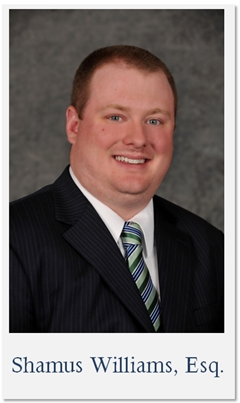May 12, 2016 •
Columbus Mayor Signs Executive Order on Ethics
Columbus Mayor Andrew Ginther signed Executive Order 2016-01 on Tuesday, May 10, establishing ethics guidelines for public officials. Effective immediately, public officials and employees may not solicit or accept gifts or employment from anyone doing business with the city. They […]
 Columbus Mayor Andrew Ginther signed Executive Order 2016-01 on Tuesday, May 10, establishing ethics guidelines for public officials.
Columbus Mayor Andrew Ginther signed Executive Order 2016-01 on Tuesday, May 10, establishing ethics guidelines for public officials.
Effective immediately, public officials and employees may not solicit or accept gifts or employment from anyone doing business with the city. They also must wait at least one year after leaving public service before representing any person or entity before a department, board, or commission with respect to a matter they personally participated in while serving with the city.
Designated officials and employees must also file financial disclosure statements each year. The statements must include a description of each gift, or aggregate of gifts, exceeding $75 from certain sources during the previous calendar year.
Ginther believes the order will help to improve public opinion of City Hall.
Q. Do gift laws preventing registered lobbyists and employers from giving gifts to public officials, also prohibit gifts to the family members of public officials? A. Generally, in states that feature a prohibition on lobbyists giving gifts to public officials […]
 Q. Do gift laws preventing registered lobbyists and employers from giving gifts to public officials, also prohibit gifts to the family members of public officials?
Q. Do gift laws preventing registered lobbyists and employers from giving gifts to public officials, also prohibit gifts to the family members of public officials?
A. Generally, in states that feature a prohibition on lobbyists giving gifts to public officials or employees, the prohibition will extend to members of the public officials’ immediate family. However, immediate family is usually a defined term and will vary by jurisdiction.
For example, Alabama law prohibits lobbyists and employers of lobbyists from offering or providing a thing of value to a public employee, public official, or family member of a public employee or public official. The state defines a family member of a public employee as a spouse or dependent. A family member of a public official is defined as the spouse, dependent, adult child and his or her spouse, spouse’s parent, and siblings of spouse and their respective spouses.
In Kentucky, the General Assembly just passed House Bill 28, which extends the prohibition on gifts to family members of legislators or candidates. Effective July 14, 2014, registered legislative lobbyists will be prohibited from giving gifts to spouses or children of legislators or candidates for General Assembly.
In Pennsylvania, gifts are also prohibited to immediate family members of public officials, employees, or candidates for public office. They interpret immediate family members to include spouses, children, parents, and siblings.
However, not all states include family members in the gift prohibitions. Minnesota’s gift prohibition applies to public officials, employees of the Legislature, and local officials, but it does not extend to their family members.
Before giving a gift to a public official or employee, you should consult the jurisdiction’s ethics commission. Do not expect officials or their family members to know the applicable laws.
You can directly submit questions for this feature, and we will select those most appropriate and answer them here. Send your questions to: marketing@stateandfed.com.
(We are always available to answer questions from clients that are specific to your needs, and we encourage you to continue to call or e-mail us with questions about your particular company or organization. As always, we will confidentially and directly provide answers or information you need.) Our replies to your questions are not legal advice. Instead, these replies represent our analysis of laws, rules, and regulations.
State and Federal Communications, Inc. provides research and consulting services for government relations professionals on lobbying laws, procurement lobbying laws, political contribution laws in the United States and Canada. Learn more by visiting stateandfed.com.

